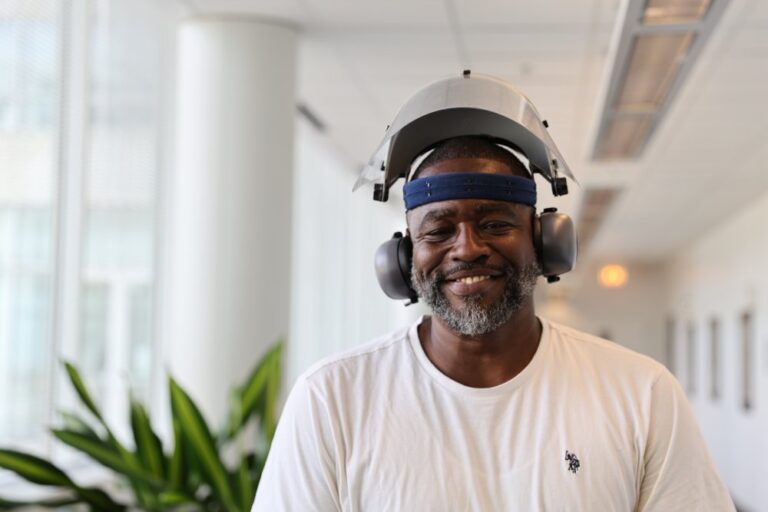
At A Safe Haven Foundation, case management is more than a service—it is a partnership. Our team walks alongside each client, offering strategic guidance, coaching, and consistent support to help them achieve their personal goals.
Grounded in the National Association of Social Workers (NASW) Code of Ethics, our services are culturally responsive and person-centered. We take a collaborative, holistic approach that includes assessment, planning, care coordination, facilitation, evaluation, exit planning, and advocacy.
By addressing a wide spectrum of needs—financial, social, medical, and mental health—our model empowers individuals to overcome challenges and thrive in their communities.
Our team includes Certified Peer Recovery Specialists (CPRS) and National Certified Recovery Specialists (NCRS) who bring both professional and lived experience to the table, ensuring compassionate and effective care every step of the way.
Our Case Management Model is grounded in nationally recognized, evidence-based practices. These proven approaches ensure we deliver personalized, effective, and compassionate care that meets the unique needs of every individual we serve.
The Strength-Based Approach centers on the inherent strengths and resources that individuals possess. Rather than focusing on deficits, we prioritize abilities and resilience, empowering individuals to engage actively in their personal journeys. This approach fosters a collaborative environment where people can recognize and leverage their skills, cultivating hope and encouraging positive transformation.

The Trauma-Informed Care framework acknowledges the pervasive impact of trauma on individuals’ lives. By embedding an understanding of trauma into every aspect of services, we cultivate a safe and supportive environment. This approach prioritizes safety and trust, allowing individuals to engage in healing journeys with confidence and without the risk of re-traumatization.

Motivational Interviewing is a client-centered technique that promotes collaborative dialogue about change. By establishing a non-judgmental space, we invite individuals to explore their motivations and aspirations freely. This approach empowers clients to articulate their desires for change, fostering a process that enhances their commitment to personal growth and meaningful transformation.

Case managers are trained to navigate crises effectively, utilizing the principles of the Crisis Intervention model to develop immediate, action-oriented plans that ensure participants’ safety and well-being. The primary goal of crisis intervention is to restore physical and emotional safety and stability, fostering wellness and capability for clients and their support systems.

Person-Centered Care prioritizes placing individuals at the heart of their care journey, emphasizing unique needs and preferences. We cultivate a collaborative partnership between caregivers and individuals, ensuring that services are customized to support each person’s specific aspirations. By promoting autonomy and respect, this approach empowers individuals to navigate their paths with dignity and confidence, enabling active participation in their care.

The Housing First model emphasizes that individuals do not need to be “housing-ready” before securing stable housing. Instead, stable housing is viewed as a fundamental need that addresses all other aspects of a person’s life. This approach values individual choice and control in service planning, allowing clients to focus on maintaining stable housing and sustaining tenancy.

Alongside the Housing First approach, case managers practice harm reduction. This principle involves meeting participants “where they are” and applies across various social and health issues, particularly for individuals navigating substance use disorders. By providing non-judgmental support, we enable participants to make informed choices about their well-being.

The Strength-Based Approach centers on the inherent strengths and resources that individuals possess. Rather than focusing on deficits, we prioritize abilities and resilience, empowering individuals to engage actively in their personal journeys. This approach fosters a collaborative environment where people can recognize and leverage their skills, cultivating hope and encouraging positive transformation.

The Trauma-Informed Care framework acknowledges the pervasive impact of trauma on individuals’ lives. By embedding an understanding of trauma into every aspect of services, we cultivate a safe and supportive environment. This approach prioritizes safety and trust, allowing individuals to engage in healing journeys with confidence and without the risk of re-traumatization.

Motivational Interviewing is a client-centered technique that promotes collaborative dialogue about change. By establishing a non-judgmental space, we invite individuals to explore their motivations and aspirations freely. This approach empowers clients to articulate their desires for change, fostering a process that enhances their commitment to personal growth and meaningful transformation.

Case managers are trained to navigate crises effectively, utilizing the principles of the Crisis Intervention model to develop immediate, action-oriented plans that ensure participants’ safety and well-being. The primary goal of crisis intervention is to restore physical and emotional safety and stability, fostering wellness and capability for clients and their support systems.

Person-Centered Care prioritizes placing individuals at the heart of their care journey, emphasizing unique needs and preferences. We cultivate a collaborative partnership between caregivers and individuals, ensuring that services are customized to support each person’s specific aspirations. By promoting autonomy and respect, this approach empowers individuals to navigate their paths with dignity and confidence, enabling active participation in their care.

If you or someone you love is seeking shelter, support, or a fresh start, A Safe Haven Foundation is here to help.
Whether you give your time or your resources, your support helps restore dignity and opportunity for individuals and families in crisis.
Jasmine, A Safe Haven Client
Pseudonymous image used for privacy